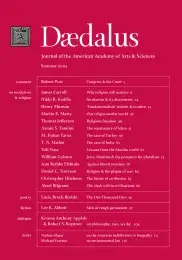‘Fundamentalism’ ancient & modern
During the reign of the Seleucid King Antiochus Epiphanes (r. 175-164 B.C.E.), lawless men arose in Israel and urged their fellow Jews to follow Greek customs in defiance of the laws of God. The king commanded the Jews to sacrifice pigs in the temple and leave their sons uncircumcised. Seleucid soldiers were to kill all those who disobeyed. Yet some Jews continued to obey the laws of God over those of the king. Among them was the priest Mattathias, who fled the desecration of Jerusalem to seek refuge in the nearby town of Modi’in.
The king’s men came to Modi’in and ordered Mattathias to sacrifice in the Greek manner. He refused. Then a Jew came forward to sacrifice as the king commanded. When Mattathias saw this, he was full of righteous rage and killed both the Jew and a Seleucid officer trying to enforce the king’s laws. Mattathias then cried out, “Let every one who is zealous for the law and supports the covenant come out with me” (1 Mace. 2:27, RSV). Mattathias and his sons and others seeking justice and righteousness fled to the hills of Judea. Joined by a band of “pious ones,” they struck down the sinners and the lawless men. They tore down the unholy altars of the Hellenists. They forcibly circumcised the uncircumcised boys within the boundaries of Israel. "They rescued the law out of the hands of the Gentiles” (1 Mace. 2148). When Mattathias died, his son Judah the Maccabee – or Judah ‘the Hammer’ (Yehuda ha-Maccabi) – succeeded him as leader of the rebellion against Hellenism and the Seleucid dynasty. At first, Judah and his men lived in mountain caves like wild animals (2 Mace. 10:6), but he was eventually able to gather an army of pious Jews to attack and burn towns and villages at night. Like a lion, he “pursued the lawless” and “destroyed the ungodly,” and “terror fell upon the Gentiles round about them” (1 Mace. 3:3 - 5, 8, 25). Judah eventually gained control of the temple in Jerusalem and purified it of all traces of the Hellenistic abominations. Jews celebrate this deliverance from oppression every year at Hanukkah.
. . .
